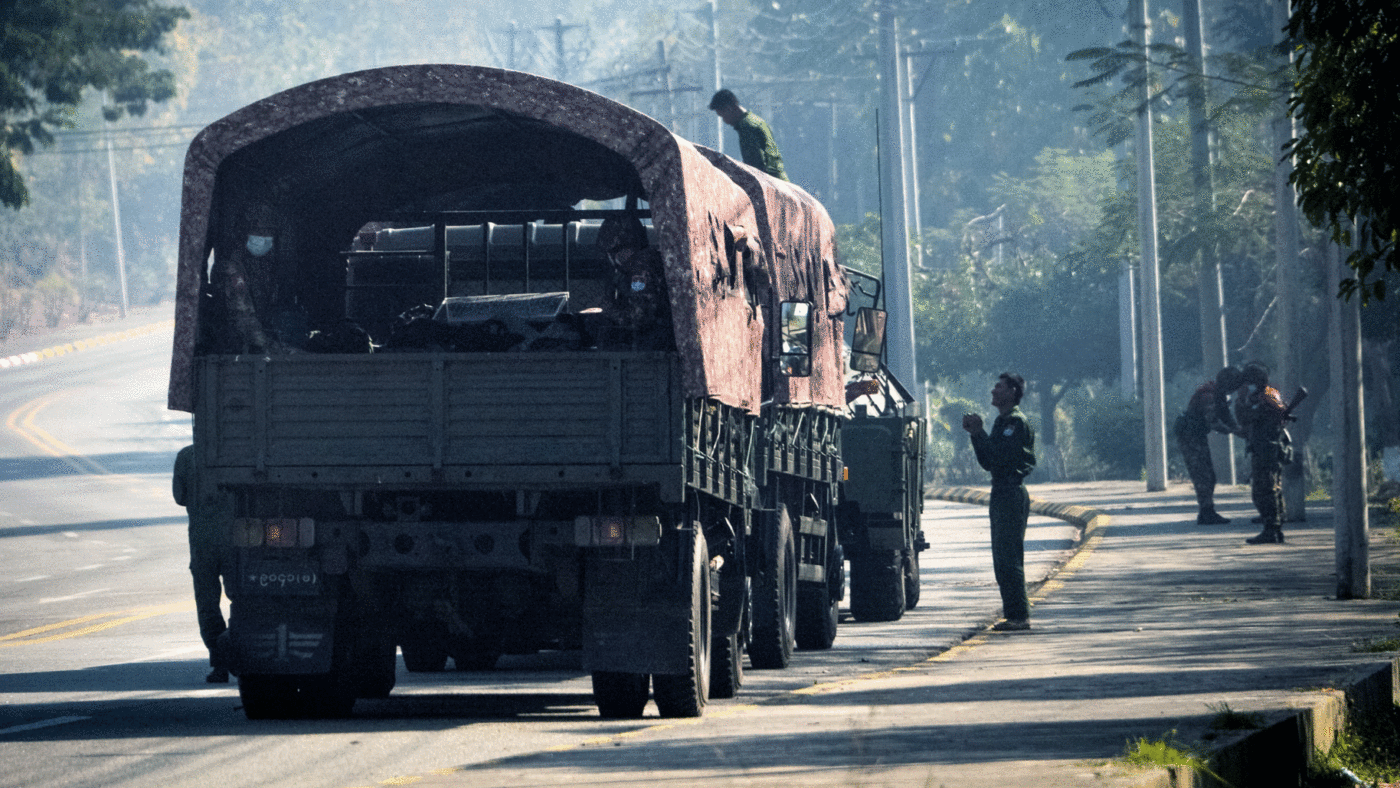How should the British Government respond to the coup in Myanmar? Both the Prime Minister and the Foreign Secretary have condemned the military’s seizure of power from a civilian government holding a democratic mandate. The immediate priority for the UK government will be rightly ensuring the safety of UK citizens in the country. Once this has been secured, there are two realistic courses of action: engaging with regional allies to support the restoration of democracy and the rule of law, and holding to account those responsible for overturning Myanmar’s democratic transition.
At the moment it’s difficult to ascertain what’s really going in Myanmar, other than that Ms Suu Kyi and her government have been detained at undisclosed locations, and the military has replaced 24 government ministers. In the first day of the coup the military also instigated widespread telecommunications black-outs, severe internet and banking disruption, and imposed a nationwide night-time curfew. So far, there has been little civil unrest, despite the deposed National League for Democracy calling for protest. The people of Myanmar need no reminder of the brutality which the country’s powerful military are well known for, as it once again becomes a vehicle for oppression and violence.
Curiously, Myanmar’s military have cited ‘election fraud’ in last November’s parliamentary elections as their justification. The accusations of voting irregularity in last year’s elections stems from the inability of some areas in the north – mostly ethnic Rohingya regions – to partake in the election. However it was the military that was responsible for the barbaric genocide of Rohingya people in 2017. To suggest that they are acting on behalf of the their democratic freedoms is nothing short of grossly offensive.
The timing of this coup was not accidental either. The day it occurred (1 February) was supposed to mark the first session of the new parliament – swearing into law the new government’s democratic mandate. The head of the military, General Min Aung Hlaing, had backed the USDP opposition party in the election and was due to step down after the new government was sworn in. So despite promises of fresh elections in 12 months’ time, this is a blatant power grab to ensure the military remain in power. Even during Suu Kyi’s government, the military were mandated to make up 25% of key cabinet positions, including the powerful defence, foreign policy, and home affairs briefs.
This is an assault on democracy and the UK must respond. First we must engage fully with regional partners and allies who exert influence in Myanmar. A notable example is Thailand, Myanmar’s second most important trading nation after China – and a close ally of the UK. Worryingly, Thailand has described the military take-over as an internal matter. The UK should seek more engagement with Thailand over this.
Fundamentally however, no country retains as much influence over Myanmar’s military as China, which provided development aid to the tune of some $580million over a three year period. For this situation to be reversed and the rule of law restored, China needs to get involved. Unfortunately, this remains a highly unlikely scenario, as China consistently fails to live up to its responsibilities as an international stakeholder. This is where the UK’s second course of action comes into effect.
The Treasury should immediately expand its targeted financial sanctions list for Myanmar’s military. Currently there are 14 individuals listed relating to the Rohingya genocide, who have assets frozen and visa blocks in force. This list should be enlarged to include not just Min Aung Hlaing but also his senior staff. The UK should also impose sanctions targeting the military’s financial revenue streams and multiple business interests. The key example here is Myanmar Economic Holdings Limited. Min Aung Hlaing himself has considerable shares in the mining, manufacturing and banking conglomerate, but so does the military as an institution, having received $18billion in dividends. Furthermore, Myanmar relies on the UK for some £400million per year in exports. Diversifying these away from all but essential services to the Myanmar economy would also send a strong signal to the military regime.
In the wake of the west’s own recent problems with the smooth transfer of power, what’s happening right now in Myanmar serves as an important reminder if the importance of upholding democratic principles. What happens in Europe and America has ramifications elsewhere in the world. Exactly four weeks after the UK celebrated leaving the Brexit transition period and its total withdrawal from the EU, supporting the democratic will of the people has a particular salience.
Click here to subscribe to our daily briefing – the best pieces from CapX and across the web.
CapX depends on the generosity of its readers. If you value what we do, please consider making a donation.


